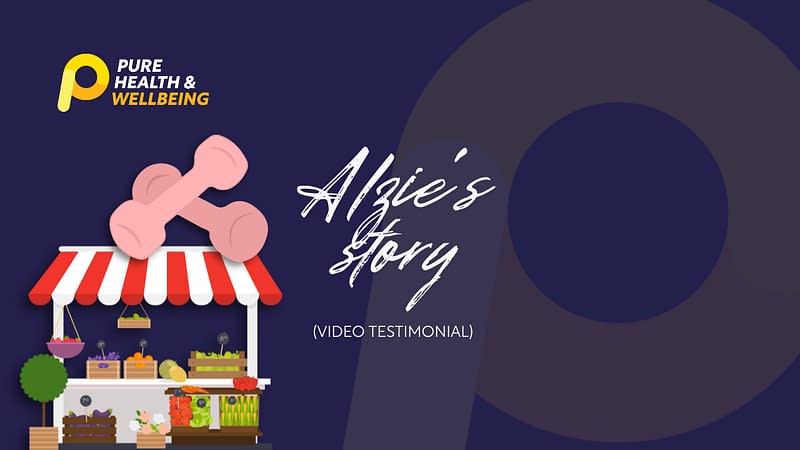The Challenge
Chronic pain patients often require complex, long-term support that primary care is not currently equipped to provide effectively. With 30% – 50% of GP caseloads consisting of chronic pain patients, GPs and First Contact Practitioners (FCPs) face difficulty managing these patients due to the complexities involved. The existing structure and stretched resources leave many patients without adequate support, exacerbating their conditions and leading to repeated GP visits.
With chronic pain closely linked to other risk factors for poor health such as obesity, depression, and reduced activity, the real burden on primary care and the wider health system is far greater. Thus, a cost-effective, sustainable solution is urgently needed to reduce the burden on primary care while helping patients live meaningful lives despite chronic pain.
 A New Model: A Holistic Approach With Person-Centred Coaching and Pain Science Education
A New Model: A Holistic Approach With Person-Centred Coaching and Pain Science Education
Pure Physiotherapy work in 290+ Primary Care Networks throughout the UK, predominantly delivering First Contact Physiotherapy (FCP) services. We have been working with our partners to develop a new service to effectively manage chronic pain and reduce pressure on primary care. This innovative new model is demonstrating even more impact reducing pressures in primary care utilising Pain specialist Health & Wellbeing Coaches (HWCs). Being fully reimbursable under the Additional Roles Reimbursement Scheme (ARRS), it is accessible for Primary Care Networks (PCNs) across the UK and extremely cost-effective.
Health coaching and personalised care is recommended for management of long-term conditions, and the growing field of specialist pain coaching is demonstrating consistent positive results throughout the UK. Pain Specialist coaches are trained in pain science, cognitive functional therapy, and behaviour change techniques, equipping them with the skills needed to support patients with chronic pain. Their training is accredited by the Personalised Care Institute, ensuring that they are experts in personalised care, goal setting, and the long-term maintenance of positive outcomes.
Implementation in Primary Care
The pain support service is fully integrated into primary care, with HWCs available through the PCN system. GPs, FCPs, and other clinicians can directly refer patients with chronic pain, including those with fibromyalgia and chronic low back pain, into the programme. HWCs conduct consultations remotely, making the service easily accessible for patients and reducing the demand for practice space. This flexibility enhances accessibility while reducing the strain on GP practice staff.
Patients are also proactively identified through searches and invited to join the programme, where they work with HWCs to explore their pain management options. Sessions focus on helping patients understand their pain, set personal goals, and develop self-management skills. These include strategies such as deep breathing, mindfulness, physical activity, sleep improvement, and dietary adjustments, all tailored to the patient’s activation level.
The Patient Journey
The pain support programme is designed to be personalised and empathetic, allowing patients to tell their stories and work with their coach to create a plan that focuses on what matters most to them. HWCs build a rapport with each patient, becoming their guide as they progress toward shared goals, providing support through the inevitable ups and downs.
Patients are encouraged to explore their values and beliefs around pain, challenge misconceptions, and learn more about how they can take control of their condition. As patients improve their self-efficacy and independence, sessions become less frequent, with the ultimate goal of empowering patients to manage their pain independently.
Measurable Outcomes
Data from one forward thinking PCN to implement the new model in South Yorkshire demonstrates the impact it can have on both patients and the primary care team. 244 patients were referred over a 6 month period, with overwhelmingly positive outcomes:
- Pain Self-Efficacy Questionnaire (PSEQ) scores increased by an average of 36%, indicating significant improvements in patients’ confidence to manage various aspects of their lives despite their pain (Between 8.5% and 11.5% is considered a significant change for the patient).
- Confidence in managing without medication increased by 48%, reducing the reliance on painkillers.
- Reduced GP workload, with over 90% of patients not visiting the GP whilst on the programme.
- Patient feedback has highlighted the value of regular, empathetic contact with HWCs. Many patients expressed experiencing a shift in mindset and an improved ability to engage in activities they had long been unable to do.
Impact on Primary Care
The service has alleviated pressure on GP practices, with a significant proportion of patients reporting that they no longer need to visit their GP for chronic pain management after joining the programme. This reduction in GP visits not only improves patient outcomes but also allows GPs to focus on other areas of care, ultimately enhancing the efficiency of primary care services.
Beyond Treatment: Community and Collaboration
The ripple effect of this model extends beyond individual care. In a growing number of PCN’s, coaches have introduced Pain Cafés, where patients, voluntary sector organisations, and individuals with lived experience collaborate to support one another. This creates a supportive community that fosters learning, empowerment, and shared responsibility. As more patients experience success in managing their pain, they contribute to helping others, creating a powerful domino effect.
Conclusion
The integration of pain specialist coaches into primary care has demonstrated substantial improvements in the lives of chronic pain patients while offering a cost-effective solution to reduce the burden on GPs and FCPs. By combining behaviour change techniques, pain science education, and personalised care, HWCs are empowering patients to take control of their pain and live more fulfilling lives.
As the programme continues to grow, it has the potential to significantly reduce the impact of chronic pain on both patients and the healthcare system, offering a sustainable solution to a complex and widespread problem.
What Our Patients Say…
All quotes from our Health & Wellbeing patients in South Doncaster
“What makes this programme successful for me is EMPATHY, UNDERSTANDING & KINDNESS – I cannot emphasise enough how important it is to hear a kindly voice on the end of a phone. Someone who is good at listening, who can help me identify positives and achievements as well as how to help myself when things have not gone so well. CONFIDENCE BUILDING – I feel I can help myself. That I am worth the effort… because it takes real effort. MOTIVATION – I feel so much more motivated to take better care of myself. I had been feeling that I’d had enough of life. UNDERSTANDING – The biological and physiological processes involved in pain which help me identify my triggers, faulty thinking etc.”
”I have enjoyed the programme so much, talking to someone who listens and encourages me each week to do a little more. Helping me to get better and feeling safe doing it. I have been in pain for so long and this has allowed me to stop taking my tablets. I have wanted to stop taking them for ages. I have benefited from the exercise and eating healthy too.”
“Knowing I am not on my own with my pain has helped tremendously. I thought as times I was making my pain up. Having you call each week and listen to me and giving me tools to use in my flare ups has helped lower my pain. I exercise much more and feel better in myself.”
“I’m writing to you to thank you for how much you’ve helped me and impacted my life. I really appreciate your help getting me to where I am now. Every phone call was like a weight lifted off my shoulders. It made life a little easier having someone to talk to who understands and supports things you’re going through.
My mental health was so bad due to constant pain, but you managed to help me and guide me in the right way to be able to deal with the things I was going through. This service is amazing and I am truly grateful.”
Learn More: Primary Care Pain Support
Download Case Study


 A New Model: A Holistic Approach With Person-Centred Coaching and Pain Science Education
A New Model: A Holistic Approach With Person-Centred Coaching and Pain Science Education


